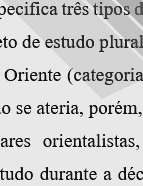

................................
It is this conception that can be found, albeit in different terms, in the historiographical reflection of several of the liberals and republicans who discussed the historical case of the bourgeoisie and problematised what they designated as Portuguese "backwardness".
Marxism beyond Marxists
It should be clear by now that the fact that this tradition has a name of its own - Marxism - does not mean that it is a homogeneous reality. In fact, when speaking of Marxist historiography in Portugal, it is also in the sense of a plural tradition. Indeed, in addition to Marxist historiography's lack of internal homogeneity in Portugal, the tradition was available for use by historians who did not claim Marxist sympathy or identity. While in the Marxist historians discussed herein it was possible to identify elements that were already present in republican inspired historiographical research, it should also be stressed that in the last decades of the twentieth century, the presence of Marxism in Portuguese historiography was felt beyond those who are most often classified as Marxist.
The intellectual paths of historians such as Miriam Halpern Pereira and António M. Hespanha cannot be understood without considering their relationship, at the same time complicit and critical, with Marxism - in Pereira's case, challenging Marxism from the tradition of the Annales and Social History, and in Hespanha's case by mobilising contributions such as those of Michel Foucault towards a renewal of the History of Law and the History of the State (Pereira, Livre-câmbio e desenvolvimento económico [Free trade and economic development], 1971; Hespanha, As Vésperas do Leviathan [The Eve of Leviathan], 1986). Although here this might be a case of the author's deliberate affiliation to Marxism, the same can be said with regard to Fernando Rosas' s reading of the Estado Novo period, in which a cross between the themes of mode of production and class struggle may be perceived, and a fundamentally political understanding - with a Jacobin resonance - of the role of the state as a regime (Rosas, O Estado Novo nos anos trinta [The Estado Novo in the 1930s], 1986).
On a closing note, and at risk of harnessing those who were not Marxist sympathisers to its empire, it should be stressed that ideological traditions often exceed the limits that tend to be imposed on them within the realms of indoctrination.
